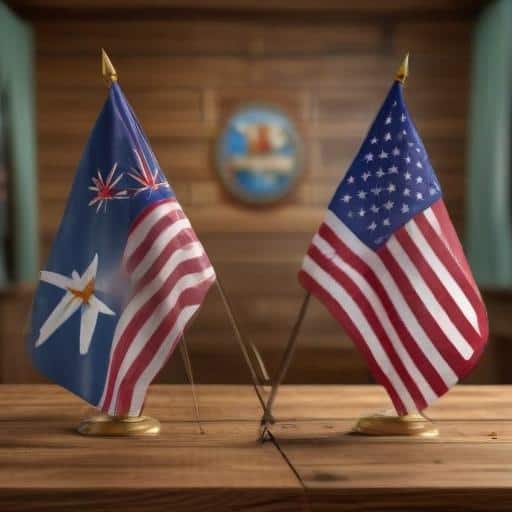The United States is reaffirming its long-standing commitment to its Pacific allies amid growing concerns about China’s influence in the region. This assurance comes from Jean Lee, the presidential chair of the U.S.-funded East-West Center in Hawaii, who recently emphasized that “America first does not mean America alone” in an exclusive interview with PMN.
Lee’s remarks follow discussions between New Zealand’s Deputy Prime Minister and Foreign Minister, Winston Peters, and U.S. military officials in Honolulu, as part of Peters’ Pacific tour, which included visits to Tonga and Vanuatu. The backdrop of these dialogues is U.S. President Donald Trump’s ‘America First’ policy, which has drawn scrutiny over its implications for international alliances and security treaties.
U.S. Defense Secretary Pete Hegseth previously voiced similar sentiments during visits to the Indo-Pacific, highlighting that alliances with countries like the Philippines and Japan form the “cornerstone of peace and security” in a region increasingly challenged by military assertiveness from China. Hegseth underscored the importance of collaboration in deterring threats, advocating for enhanced military cooperation and aid, particularly to the Philippines, where the U.S. plans to restore a $500 million military aid package.
Despite these assurances, skepticism persists regarding the reliability of the U.S. as a security guarantor due to ongoing requests for allies to increase their defense spending. Lee asserts that discussions in Manila and Tokyo centered on concrete partnerships aimed at strengthening military capabilities, emphasizing a strategy of deterrence against potential aggression from China.
The recent conversations also reveal an understanding among Pacific nations of the importance of U.S. aid, especially as the Trump administration evaluates its funding strategies. Peters noted the critical nature of U.S. support, particularly in light of historical connections and commitments, as they navigate geopolitical dynamics influenced by China’s growing presence.
Moreover, remarks from Tulsi Gabbard, Trump’s director of national intelligence, reinforce the notion that prioritizing American interests does not equate to isolationism. This reflects a broader sentiment that emphasizes ongoing cooperation and partnership among nations focused on mutual security and development.
Lee highlighted the significance of the U.S. aid, which remains vital amid discussions about potential reallocations of assets within agencies like USAID, and reassured that substantial funding for Pacific nations under agreements like the Compact of Free Association remains intact, showcasing the U.S.’s commitment to regional stability.
In essence, while challenges exist, the ongoing dialogue between the U.S. and its Pacific allies reflects a proactive approach to fostering resilience and enhancing cooperative frameworks against common challenges posed by rising powers like China. This opens avenues for strengthened alliances and collaborative efforts geared toward a secure and stable future in the Pacific region.

Leave a comment